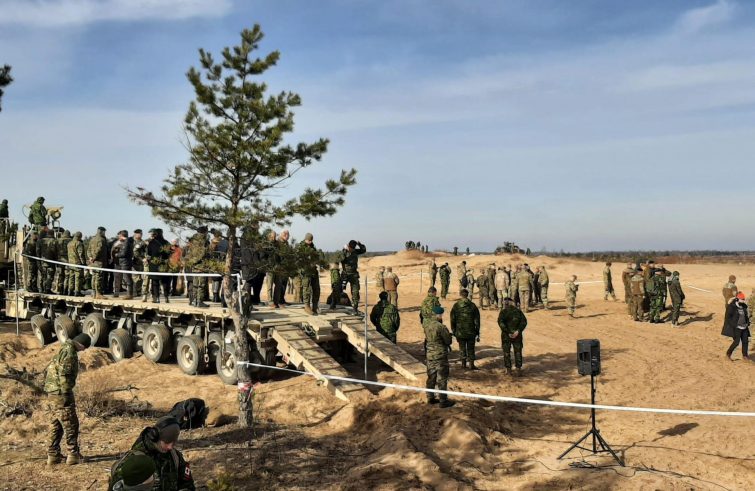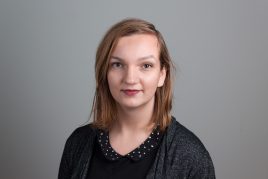
Life continues at a quasi-normal pace in Latvia’s capital Riga, but its 217-kilometre border separating the country from the Russian Federation and, above all, the memories of its decades-long Soviet occupation are a cause of growing concern since February 24. However, the fact that, unlike Ukraine, Latvia is a NATO member country, is somewhat reassuring – Velta Skolmeistere, a researcher at the Latvia University (Communication and Media Studies) tells SIR. A new law stipulating that monuments that “glorify the Soviet regime” must be dismantled (with the exception of tombstones) is being passed through parliament, but local councils can already start planning their removal. Meanwhile, the Government introduced legislation outlawing the teaching of minority languages in public schools to ensure that all students have an equal command of the national language, while leaving minority language and history studies to be taught in extracurricular activities. Russian speakers make up approximately 37% of the country’s 2 million inhabitants.
 Latvia has an extended border with Russia: has the perception of this border changed since February 24?
Latvia has an extended border with Russia: has the perception of this border changed since February 24?
A major topic of discussion in both political and social arenas is the fact that Latvia, like other Baltic States, has been repeatedly denouncing a threat to its border at international meetings. And the overall impression was that no one had taken it seriously. Today this has changed. On the other hand, the local population is increasingly valuing the fact that we form part of an international alliance, and people are more confident that thanks to NATO, we are in a different position compared to Ukraine.
What has changed in everyday life?
We are seeing more NATO Military Exercise, warplanes crossing our skies, along with news reports explaining why. Just as before, we are prepared for what is known as ‘civil defence’, i.e. to be prepared for an emergency within 72 hours. But this is unrelated to the possibility of an attack.
The most conspicuous and visible experience is the inflow of refugees.
Then of course there have been cases – in universities, for example – of terminated partnerships with Russian universities, while Russians who sat on executive boards representing official Russian institutions have been replaced. Everyone wants the lowest degree of relations with Russia.
What is “civil defence”?
Universities offer a course on emergency preparedness, information campaigns and materials on social media explain what people should have at hand, what they should take with them in the first 72 hours. The experience of Ukraine has shown that the first three days are crucial. Thereafter, assistance is provided, and eventually everything starts being arranged.
There is a large Russian-speaking minority in Latvia: do they stand with Ukraine or with Russia?
There are supporters on both sides. Some Russian-speakers, however, are not of Russian origin. Therefore it’s hard to draw clear lines. In the wake of the war, many people of Russian origin oppose it, they are trying to make themselves heard and ask not to be treated as enemies: origins cannot be changed. There are also those who support Russia’s positions. This is a result of propaganda, of their upbringing, of their family background. But they are a minority within a minority. Tensions did arise with the arrival of the Ukrainians, there were fears of unrest in connection with the 9 May celebration, but the police enclosed the monuments and there were no major incidents, except for a few disorders in the following days.
Two political parties somehow connected to Russia behaved in opposite ways:
the larger one, the Social Democratic Harmony Party (SDP ‘Saskaņa’), distanced itself from Russia, the smaller one, the Russian Union of Latvia (Latvijas Krievu savienība), supports Russia – albeit not overtly.
How does news media operate?
There is a Latvian State Television that offers content in Russian, as well as a Latvian radio station reporting in Russian. There are also Russian international channels, and when the war broke out, TV channels deemed to be a threat for their propaganda were blocked. This had been debated for years, with many differences of opinion. On this occasion, a greater majority agreed to shut them down. Of course it’s rather late, because people’s mindsets were influenced in the past. But at least, the propaganda has been stopped now.
Tensions arose over the dismantling of a Soviet monument: do you expect that the bill mandating the dismantling of all Soviet monuments in the country could foment further frictions?
It concerns monuments that glorify the Soviet regime. Tensions existed over one particular monument in Riga, the Monument to the Liberators of Soviet Latvia and Riga from the German fascist invaders, where many lay flowers on May 9. Now Riga’s city council has decided that the monument must be removed by November.
With regard to the war in Ukraine and the looming threats to Latvia, what is the position and the messages of the religious communities in the country?
I think the Churches are not addressing this issue very strongly. But there have been prayers for peace, messages against hatred and, above all, major efforts to welcome refugees.
With regard to the role played by the European Union over the past few weeks, how is it perceived?
For sure, the Latvians are in favour of harsher sanctions and outright oil and gas boycotts. The fact that larger countries, such as Hungary, have voted against the boycott raises some feelings of resentment. The Baltic States and other countries bordering Russia have repeatedly warned that there are few avenues for dialogue and that what is happening must be taken seriously.
Are Latvians ready to sacrifice their own comfort, seeing prices rise?
Energy prices have been soaring since the start of the year, now also gas. There are certainly concerns because it will be a financial burden for some people. However, the overall mood is that standing together, united, will be of help.
Should the situation deteriorate for us while other countries continue importing gas, people will become discouraged, because their sacrifice will not yield results.
If, however, that effort has an impact on the Russian economy, people will be more willing to give up their comforts. We know what could happen from our past history, and that there are no “tender paths” leading to safety. Admittedly, the consequences are bound to be – and already are – severe, average pay rises are failing to keep up with the rise in the cost of living. We will we have the data to confirm it in a few months, but we already have a clear perception of growing difficulties.









